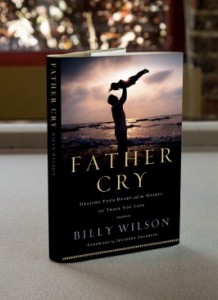When You’re Struggling
This has been a difficult season for me.
I don’t mean spring, which went by in a blur. Nor do I mean summer, which is just now starting to heat up.
I mean the season of life I am currently in, and have been for awhile. Over the past several months, I’ve been struggling. The details of my struggle aren’t what’s important. Suffice it to say that it’s been long enough now that I am convinced God is not going to miraculously take this season away and make everything all right.
And so, because I am in the same place many of you are, I wanted to reach out to you today, to those of us who are struggling. If you’re not struggling with anything—if life is great right now—I’m glad for you. But you may want to read on anyway, because all of us will struggle at some point in our lives, and you may find yourself doing so in the future.
When we’re going through difficulties in life, our first reaction is usually to try to change our circumstances. To make the difficulties go away. We pray. We beg God. We read books. We talk to our pastor, priest, or friends. We do everything we can think of to make things better.
All of those things are good things to do. But sometimes, even they don’t seem to help much. Our circumstances don’t change. We continue to feel stressed, discouraged, or depressed. And we realize that God has said “no” to all our requests to change things and make the problems go away.
What then? What do we do then when it looks like our suffering is going to be going on for a long time? When every day is a struggle? When there’s no relief in sight?
The Apostle Paul would have understood our dilemma. Scripture tells us that three times, he asked the Lord to remove some unnamed problem or difficulty from him, but the Lord said no.
What then?
I don’t have all the answers. I can’t tell you when your difficult season will end, or why God won’t make it better right now. But I can tell you this—what will make the most difference to you during this time isn’t knowing exactly how many more days, weeks or years you have to go, or even knowing why God chose to permit your suffering.
What will make the most difference is knowing two things: first, God loves you deeply and passionately, and He cares about what is happening to you. You are His beloved child, and when you hurt, He hurts. God does not stand idly by, unmoved by your distress. Just as you long to comfort your children when they hurt, so God longs to comfort you. He loves you. In fact, He’s crazy about you. And when you suffer, He cares. Psalm 56:8 says, ”You have kept count of my tossings; put my tears in your bottle.” In other words, when you are writhing in pain, whether physical or emotional, God cares about what is happening to you. When you cry, He cares. Why? Because He loves you.
The second thing you need to know is that this, too, shall pass. I know it’s a cliché, but it’s true. It hurts now, and it might hurt for a really long time. But eventually—whether here on earth or someday in heaven—the hurt will be over. In the meantime, we won’t drown in the pain, even if it feels like it. The stress will not overcome us. God has promised that He can, and will, bring us through. So yes, right now every day might be one more day of hurt. But it’s also one day closer to your deliverance.
While you still suffer, crawl up into God’s lap and let Him love on you. Let Him comfort your soul as only He can. And remember that He does indeed have plans for your suffering to be over, plans He’s already put in motion. Until then…you’ll make it.
He’ll be right beside you, holding your hand, all the way.
Isaiah 43:1-3a—But now, this is what the LORD says—he who created you, O Jacob, he who formed you, O Israel: “Fear not, for I have redeemed you; I have summoned you by name; you are mine. When you pass through the waters, I will be with you; and when you pass through the rivers, they will not sweep over you. When you walk through the fire, you will not be burned; the flames will not set you ablaze. For I am the LORD, your God, the Holy One of Israel, your Savior.”


 Several years ago, Lindsey appointed herself my “company girl”. This means she accompanies me whenever I go somewhere (at least, any time she’s allowed to) and keeps me company on the trip. It doesn’t matter to her what we do; she just likes being together.
Several years ago, Lindsey appointed herself my “company girl”. This means she accompanies me whenever I go somewhere (at least, any time she’s allowed to) and keeps me company on the trip. It doesn’t matter to her what we do; she just likes being together. Yes, I know the title of this devotional is spelled wrong. But let me explain.
Yes, I know the title of this devotional is spelled wrong. But let me explain.